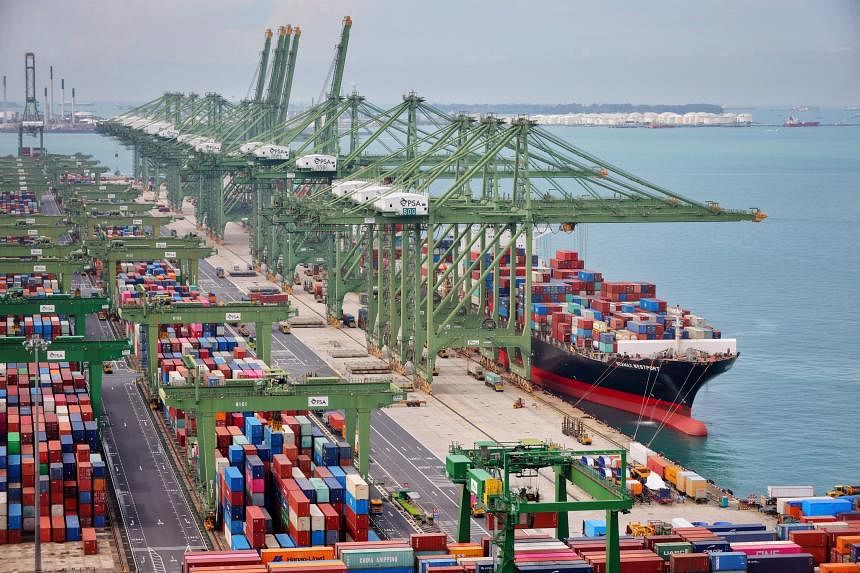SINGAPORE - Singapore continues to be the leading maritime city in the world, unaffected by global conflicts and the rising environmental challenges of the industry, said ship classification society DNV in a report.
The Leading Maritime Cities (LMC) report – prepared in collaboration with Menon Economics – places Singapore in the top slot, a distinction it has held since 2019.
The report, published every alternate year, based on data collected from port cities worldwide and evaluation from 190 experts, said Singapore led in three out of the five pillars it uses in the study to benchmark cities.
“According to our experts, Singapore will remain the leading maritime city of the world for the next five years,” it said.
The Republic maintained its leading position in the Attractiveness and Competitiveness pillar, and reclaimed its top spot in the Shipping pillar from Athens and in the Ports and Logistics pillar from Shanghai.
Singapore was placed second in the Maritime Technology pillar, behind Busan. It made significant progress in the Finance and Law pillar, rising from eighth position to finish fourth behind London, New York and Oslo.
In overall ranking, Singapore was trailed by Athens, Tokyo, Shanghai and Hamburg.
The report said Hong Kong, which ranked fourth in 2019, has now fallen to 12th place. Athens has also experienced a significant drop in the total ranking, even though it is still No. 2 when it comes to the Shipping pillar.
On the other hand, the Middle East, despite war and turmoil in the region, has strengthened its position. Dubai improved its position to 11th overall since the previous edition. Abu Dhabi made the most remarkable jump, moving up 10 places from 32 to 22, said the report.
The 2024 edition of LMC introduced new indicators to address the transformative effect of decarbonisation and digitalisation. “As the industry embraces new and cutting-edge technologies, the impact of these two dimensions cuts across the five pillars that the cities are benchmarked on,” it said.
The report said maritime industry experts voted Singapore, Oslo, Shanghai and Rotterdam to be the cities best prepared for the digital transformation of the industry.
“Singapore’s investment and focus on maritime decarbonisation has also further consolidated its position as the world’s leading centre for green technologies and solutions, followed by Oslo and Rotterdam.” it said.
The report said the global shipping industry has demonstrated remarkable resilience in the face of the war in Ukraine, simmering disputes in the South China Sea and the ongoing conflict in the Red Sea.
The trajectory for the industry is optimistic, with global trade likely to grow by more than 2 per cent between 2024 and 2028.
The LMC report said the world’s climate crisis has also become another major force driving change, leading to a significant shift in attitudes globally and especially within the maritime community.
The change is exemplified by the 2023 International Maritime Organisation (IMO) Strategy on 100 per cent reduction of greenhouse gas (GHG) emissions from ships by 2050.
The IMO Strategy includes a vision for a just and equitable transition, as well as specific targets for carbon intensity reduction and the uptake of zero or near-zero emission technologies, the report said.
“The technological progress is startling, but we are still far from the GHG goals set by the IMO,” the report said.
It added: “However, actors in the maritime industry worldwide are preparing for a low- or even zero-carbon future, and we can expect rapid implementation of zero-carbon fuels in the next 10 to 15 years.
“We predict that cities taking the lead in the green transformation will become the leading maritime cities of the world within the next decade.”


